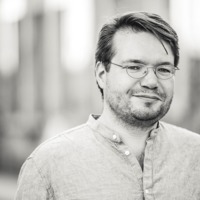
Anne Newstead
The University of New South Wales, School of History and Philosophy, Sessional Lecturer (2004, 2005, 2009)
The University of Sydney, Faculty of Education and Social Work, ARC DP Research Associate (2011-2012)
Western Sydney University, School of Humanities & Communication Arts, Tutor (2019, 2020), College Academic Teacher (2015-17), MTeach (2013-5)
The University of New South Wales, School of Mathematics and Statistics, ARC DP Research Associate (2007-2010, part-time)
By studying Spinoza's Ethics, Wittgenstein's Tractatus, and Aristotle’s Physics, I first became seriously interested in philosophy. It soon became apparent that Spinoza's metaphysics suffered from confusion surrounding the concept of infinity, and so it was necessary to detour into mathematics and logic, and the history and philosophy of mathematics to remedy that defect. Clarifying the concept of infinity proved an endless task, but it left me with an enduring interest in philosophy, its history, epistemology, and mathematics as a special case study in metaphysics and epistemology.
Deductive geometrical knowledge such as is found in Euclid's Elements has always been a paradigm of knowledge for philosophers from Plato and Aristotle to Kant, and yet it is clear that there are many different types of knowledge that do not conform to this model. Consider the domains of different fields of knowledge: for example, we have geometrical knowledge, agential knowledge, self-knowledge, and (somewhat more controversially) moral knowledge. Do these varieties of knowledge share a common characterisation, perhaps in terms of practical knowledge, or is such a unified theory of knowledge impossible? What is the epistemic character of these different domains of knowledge?
Is certainty anywhere to be found, perhaps in some domains (such as in geometrical knowledge and in a revamped Cartesian cogito) and not others (such as knowledge of the world)? If so, what is the source and the theoretical cost of such certainty? Is a priori knowledge really a reasonable aspiration for naturalistically minded philosophers?
Must we learn to live with uncertainty? How can education prepare us to live well and harmoniously in today's world while bringing the best of western and eastern philosophical traditions with us?
Address: Sydney, Australia
Deductive geometrical knowledge such as is found in Euclid's Elements has always been a paradigm of knowledge for philosophers from Plato and Aristotle to Kant, and yet it is clear that there are many different types of knowledge that do not conform to this model. Consider the domains of different fields of knowledge: for example, we have geometrical knowledge, agential knowledge, self-knowledge, and (somewhat more controversially) moral knowledge. Do these varieties of knowledge share a common characterisation, perhaps in terms of practical knowledge, or is such a unified theory of knowledge impossible? What is the epistemic character of these different domains of knowledge?
Is certainty anywhere to be found, perhaps in some domains (such as in geometrical knowledge and in a revamped Cartesian cogito) and not others (such as knowledge of the world)? If so, what is the source and the theoretical cost of such certainty? Is a priori knowledge really a reasonable aspiration for naturalistically minded philosophers?
Must we learn to live with uncertainty? How can education prepare us to live well and harmoniously in today's world while bringing the best of western and eastern philosophical traditions with us?
Address: Sydney, Australia
less
Related Authors
Wolfgang Achtner
Justus-Liebig-University Giessen
Wolfgang Achtner
Justus-Liebig-University Giessen
Gregory L . Scott
New York University
Christian Tapp
Innsbruck University
Jana N D I A Y E Berankova
Columbia University
Claudio Ternullo
Universitat de Barcelona
Rico Gutschmidt
University of Konstanz, Germany
Ezurike O S O R A C H U K W U Frankduff
University of Ibadan Nigeria
José Ferreirós
Universidad de Sevilla
InterestsView All (16)









Uploads
Papers by Anne Newstead
Spinoza’s epistemology is complex, with both a rationalist and an intuitionist side. The key to understanding Spinoza’s epistemology is to focus on the notion of intuitive knowledge (scientia intuitiva), which provides an immediate, non-discursive knowledge of its singular object. Intellectual knowledge in Spinoza’s philosophy has an affective component: it is a form of love, and ultimately, given Spinoza’s monistic metaphysics, it is a form of the intellectual love of God (amor Dei intellectualis). This note will insist with Genevieve Lloyd’s ‘Reconsidering Spinoza’s Rationalism’ that such a doctrine is an integral part of Spinoza’s philosophy. However, my approach relies on a somewhat different but complementary route to Lloyd’s, with special attention to Spinoza’s philosophy of geometry and his youthful immersion in medieval Jewish philosophy.
(I have uploaded an accepted manuscript version, however please cite the version of record at Australasian Philosophical Review 2020, vol.4, no. 3.)
Research projects by Anne Newstead
Spinoza’s epistemology is complex, with both a rationalist and an intuitionist side. The key to understanding Spinoza’s epistemology is to focus on the notion of intuitive knowledge (scientia intuitiva), which provides an immediate, non-discursive knowledge of its singular object. Intellectual knowledge in Spinoza’s philosophy has an affective component: it is a form of love, and ultimately, given Spinoza’s monistic metaphysics, it is a form of the intellectual love of God (amor Dei intellectualis). This note will insist with Genevieve Lloyd’s ‘Reconsidering Spinoza’s Rationalism’ that such a doctrine is an integral part of Spinoza’s philosophy. However, my approach relies on a somewhat different but complementary route to Lloyd’s, with special attention to Spinoza’s philosophy of geometry and his youthful immersion in medieval Jewish philosophy.
(I have uploaded an accepted manuscript version, however please cite the version of record at Australasian Philosophical Review 2020, vol.4, no. 3.)
Note: There is a subscript s used to indicate a subset of the set S that is in the statement of the axiom of separation on p.2 which I've put back in here (not in first version of the note posted unfortunately).
AAJS 2021, https://aajs2021.sched.com/event/hahn/complications-of-jewish-citizenship-from-philo-to-spinoza
on some topics in world history that are taught in schools or in my opinion should be taught in research-informed teaching. The introduction to the blog explains:
"This website is a world history blog for secondary college students, university students, and the general public interested in world history, philosophy, and studies of religions. Various themes in intellectual and cultural world history will be touched on with discussion of some pivotal moments in the interaction and collision between different cultures and civilizations, specifically the interaction between western European Christendom, the Muslim world, and the Jewish world."